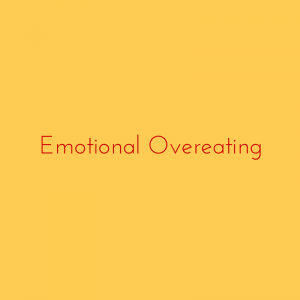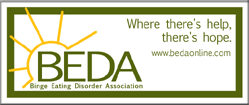At the Austin Eating Disorder Specialists professional group meeting in November I had the pleasure of hearing Dr. Susan C. Mengden, the co-executive director of the Eating Disorder Center of San Antonio, present on “Treating Binge Eating Disorder in an Intensive Outpatient Setting”. She offered some good reminders about Binge Eating Disorder that I would like to share:
1. Binge eating disorder (BED) is the most common type of eating disorder. It affects men and woman almost equally. External risk factors for BED, according to Dr. Mengden include physical/sexual abuse, bullying, family dynamics and poor self-esteem and/or shyness.
2. Up to 30% of those seeking weight loss services most likely meet the criteria for binge eating disorder. Weight loss or weight loss surgery does not cure binge eating disorder. Before any type of weight loss is considered the binge eating disorder must be dealt with or weight loss is almost impossible. If you feel that you may have binge eating disorder, consider getting screened for it and don’t try to diet your way out of it—most likely dieting will make the BED worse.
3. Anger and anxiety is are the predominant emotions that lead to binge eating. That is, anger and anxiety are the emotions that most often trigger binge eating episodes. I like to remind clients that eating disorders are functional. That is, there is some benefit that the sufferer is getting out of doing the eating disorder behaviors. Eating disorders are not due to lack of will power on the sufferers’ part. Overeating helps, short-term, soothe uncomfortable emotions.
4. Restriction is often common in binge eating disorder. Usually with those who struggle with binge eating have chronically dieted and tend to diet (or restrict food) on a regular basis. Restriction is well documented to exacerbate binge eating (Can’t mess with biology!) and food restriction can lead to increase anxiety (see #2).
5. Body dissatisfaction is present in almost all cases of binge eating disorder regardless of body size. Body dissatisfaction and the drive for thinness usually leads to dieting. Improved body image is needed to help in the recovery from BED.
To learn more about Binge Eating Disorder go to:



